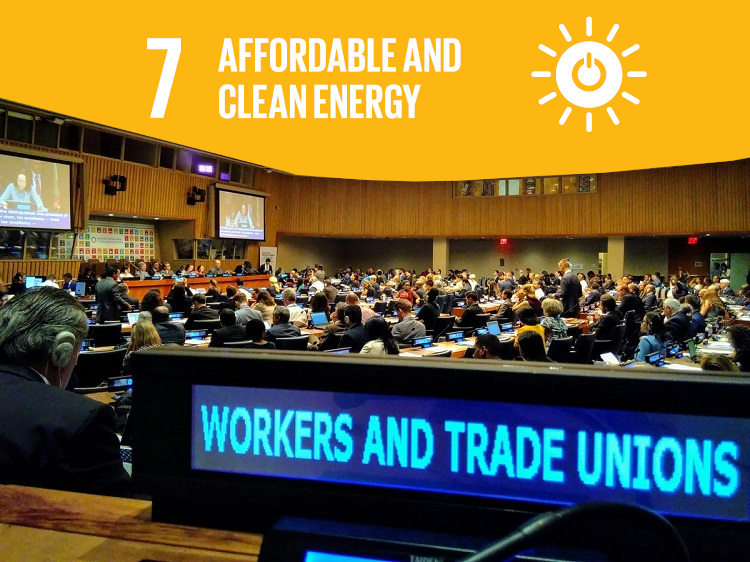Regional integration
In the build up to the HLPF, the regional commissions of the United Nations organise Regional Forums on Sustainable Development. Trade unions have been engaged in these processes (see here, here and here). However, in most cases a formal framework for stakeholder participation has yet to be set up.
The Asia-Pacific region is the exception. UN ESCAP has facilitated the Asia Pacific Regional CSO Engagement Mechanism (APRCEM), a self-organised and independent platform for civil society organisations and trade unions. APRCEM is now an official stakeholder group within the UN system and participates in the HLPF as such. It is the first regional stakeholder group to obtain this status.
The success of this platform has lead stakeholders in other regions to seek to replicate its model. On day 2 of the HLPF, trade unions joined other stakeholder to meet with UNECE to discuss just that. Together, they highlighted their willingness to participate as well as the need for a formalised engagement mechanism. The ITUC’s Pan-European Regional Council (PERC) brings together trade unions in the region. A formal role at UNECE would strengthen its contribution to addressing regionally specific issues, including barriers to achieving the Sustainable Development Goals.
In its report entitled ‘A trade union take on the SDGs 2018’ the ITUC has extracted some global trends from trade union experiences of 2030 Agenda implementation at country level. Spaces for meaningful contribution to policy at regional level would help to reinforce the regional dimensions of trade union perspectives and analysis and their impact on decision-making.
As outlined in the summary of day 1, the HLPF format is not finalised. A better integration of regional processes is likely to be part of the aims of the HLPF reform.
SDG 7 review
The second day of HLPF 2018 saw the review of Goal 7 - Ensure access to affordable, reliable, sustainable and modern energy for all. Rosa Pavanelli, General Secretary of PSI spoke for the Workers and Trade Unions Major Group.
In her intervention, GS Pavanelli highlighted the gaps, both in terms of access to energy and of decarbonising its production. Limited energy access has implications on gender inequality, with women more impacted, notably by increased burdens of unpaid domestic and care work. The market approach is not providing inclusive solutions. Instead, strong public policies and governance on energy are needed. Isabelle Durant, Deputy Secretary-General of the United Nations Conference on Trade and Development (UNCTAD), confirmed this approach in her subsequent intervention, further noting that without public investment, remote communities will be left further behind.
"While innovative & #BlendedFinance, financialisation, and more #PPPs will likely make the finance sector happy, these proposals will not reach those most in need." @RosaPavanelli addresses #HLPF2018 on #SDG7#SDGs #HLPF #PeoplesGoals pic.twitter.com/K5pqdu5BQB
— Unions4Dev (@TUDCN_rscd) 10 July 2018
Further information:


